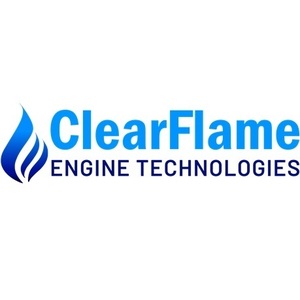ClearFlame, Alto partner to fuel diesel engines with ethanol

May 18, 2021
BY ClearFlame Engine Technologies
ClearFlame Engine Technologies, a growing startup dedicated to the development of clean engine technology on May 17 announced a partnership with Alto Ingredients Inc., a leading producer of specialty alcohols and essential ingredients, to conduct pilot demonstrations of its proven solution for diesel engines using low-cost ethanol in Class VIII trucks.
ClearFlame will provide Alto with a Class VIII truck retrofitted with a 500hp heavy-duty demonstration engine, which can match diesel torque and efficiency by achieving true diesel-style combustion of any decarbonized fuel. In turn, Alto will provide fuel and fleet support, which will enable real-world testing on the road. ClearFlame anticipates its engine running on ethanol can reduce GHG vehicle emissions by more than 45 percent and offer an estimated 15-30 percent TCO savings when compared with a diesel-fueled solution.
Advertisement
“This is an important milestone for us as we can now offer fleets a widely available fuel solution so they can begin to test our technology easily in real-world environments,” said Dr. BJ Johnson, ClearFlame CEO and co-founder. “Alto provides the important logistical infrastructure critical to ensuring successful demonstration – everything from tank installation to dispensing of the fuel, with a well-established existing liquid fueling infrastructure already in place. We look forward to working with them to drive forward our mission of quickly decarbonizing heavy-duty industry with a practical, cost-effective solution that is available today.”
“Alto Ingredients is partnering with ClearFlame on its engine project to support our customers’ CO2 reduction efforts by displacing 100 percent of the diesel in the tank,” said Mike Kandris, CEO, Alto Ingredients. “We are proud to partner with ClearFlame in such a transformative project within the fuel industry, promoting the increased use of ethanol and contributing to material improvements in the decarbonization of our environment.”
Advertisement
ClearFlame’s unique engine technology enables low-carbon and carbon-negative fuels to be easily integrated into existing diesel engine platforms, offering a more sustainable and cost-effective solution than diesel fuel while utilizing existing liquid fuel infrastructure. It provides the same performance, efficiency, and rugged practicality associated with diesel engines, while eliminating the need for complex aftertreatment solutions. By replacing 100 percent of the petroleum fuel used with decarbonized fuels such as ethanol, ClearFlame’s engine technology significantly reduces greenhouse gas emissions, particulate matter and smog, helping to meet stringent emissions regulations while reducing overall engine cost. ClearFlame-enabled trucks will begin driving in late 2021, for fleet testing to begin in the first quarter of 2022.
Related Stories
Calumet Inc. on Aug. 8 confirmed its Montana Renewables biorefinery is currently running at full capacity. An initial phase of the company’s MaxSAF initiative remains on track to boost SAF capacity to up to 150 MMgy by mid-2026.
Marathon Petroleum Corp. on Aug. 5 released second quarter financial results, reporting improved EBITDA for its renewable diesel segment. The company primarily attributed the improvement to increased utilization and higher margins.
Chevron Corp. on Aug. 1 confirmed the company started production at the Geismar renewable diesel plant in Louisiana during the second quarter after completing work to expand plant capacity from 7,000 to 22,000 barrels per day.
The public comment period on the U.S. EPA’s proposed rule to set 2026 and 2027 RFS RVOs and revise RFS regulations closed Aug. 8. Biofuel groups have largely expressed support for the proposal but also outlined several ways to improve the rulemaking.
In celebration of World Biodiesel Day, MOL Group on Aug. 8 announced SAF was successfully produced for the first time at INA’s Rijeka Refinery during a pilot project to process biocomponent. Renewable diesel was also produced.
Upcoming Events










